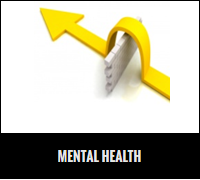Human Evolution: Theory of Self
Anthropologists may have theories about why this took so long to happen. So do I. And the next table I believe can start to explain my theory of why in part.
| Humans by Era | Average Lifespan at Birth (years) |
| Neanderthal | 20 |
| Upper Paleolithic | 33 |
| Neolithic | 20 |
| Bronze Age | 18 |
| Classical Greece | 20-30 |
| Classical Rome | 20-30 |
| Pre-Columbian North America | 25-35 |
| Medieval Britain | 20-30 |
| Early 20th Century | 30-40 |
| Current world average | 78 |
According to the Encyclopedia Britannica Certainly the fact that human beings were in small groups, isolated from one another, hostile to one another, with focus on daily survival, was a contributing factor to their inability to develop better survival tools and ideas. And in some parts of the world there was warm climate with an abundance of easily accessible animals and vegetables, perhaps not necessitating development as much for survival. But I believe there was an even more important factor. And that was their life span. I believe that human beings do not develop their mind’s/brain’s potential for problem solving, consequential thinking, until after 20 years of age. And for that to even happen after 20 the groundwork for thinking, as opposed to mimicking doing, has to be laid. I believe that not only was the training of individual young limited to survival skills, but too few lived long enough where they could have put to use their own brain’s development to analyze their experience, entertain ideas, do trial and error, which could have brought about new solutions. As archeology has shown critical, evolutionary thinking happened only in the most limited sense. As we can see by analyzing the table, the short, average life expectancy persisted until the early 20th century. So how did humanity still manage to create advances in knowledge, given my theory? The domestication of plants and animals that began around 10,000 years ago, while anthropologically shortening the average life span, (more disease from domesticated animals and closer contact with denser human populations), also had the effect of having more and more people survive to a later age. Although the average life expectancy went down, population numbers went way up. Because of better nutrition the chances of more and more people surviving longer was statistically ensured. Survival wasn’t tied as much to what the environment had to offer, as hard work, and the weather. Agricultural communities also developed specialized trades. This set of circumstances allowed more individuals to reach an age where their brain’s potential could be developed, along with having more time, in winter season and growing seasons, where the potential of their brain could be put to use. It is not surprising that with the advent of sewage systems, hygiene, antibiotics, and anesthetics, and sufficiently available food in the 19th and 20th centuries, record numbers of people started to live into their 40’s, 50’s and 60’s. And it was these individuals who were directly responsible for the industrial revolution and nearly all of the scientific advances that improved the quality of life.
But that is not all that has happened as a result of scientific advancements leading to longer life spans. Another revolution, that of a morality that included strong social responsibility, started to take root.
Again, how would we explain this by looking at life span?
But before I explain it let me again ask the same question I asked before. Why were there 2 world wars and countless others, genocides and holocausts, slavery and child labor, together with all of these scientific advances? After all didn’t we have an ever growing number of these mind-developed, educated, human beings? Isn’t developing the mind enough to make people more caring about other human beings? History clearly tells us, NO! And to this day merely being educated does not equate with being compassionate and caring. It seems that a developed mind is insufficient for the greater causes of humanity – ending hunger, poverty, bringing peace and ensuring that equality and opportunity for self-expression are available to all.
The second question you may want to ask yourself is, “Why did it take 2 million plus another 10,000 years for human beings to start becoming more morally responsible for their fellow human beings?”
If we go back to the table we see that today the average life span is 78 years. At the turn of the 20th century it was 47 years in the USA. In most other countries it was even less. The answer is relatively simple. With the majority of human beings living only into their 20’s and 30’s not only was there insufficient time to develop the ‘Self’, but not even sufficient time to develop the mind. Along with that fact, survival, dominance and the competitive nature of man were at the forefront of human interactions.
At the turn of the 20th century, more food, penicillin, brought the average life expectancy to 47 and the advent of universal education began to provide the foundation for the wholesale development of people’s minds. Air travel, television, atomic energy, medical breakthroughs, the Internet, and many more inventions are the clear product of the millions of human beings now afforded the opportunity to develop their minds. But world wars, religious wars, hunger and starvation, abuse, slave trade, servitude, hate, cold wars, nuclear annihilation, financially using people by not paying or underpaying them, still persisted.
It wasn’t until the mid-1950’s and on, when the population started to reach 50’s, 60’s and beyond in large numbers, continuing on until today, when the average life expectancy is 78, that millions of mind developed people have begun to reach an age, where their lower needs (Maslow) have been satisfied, and can be available for the full development of their ‘Self”. So it is no coincidence that at least in the West, there is the response to global strife and hunger, and illness that is much more humane and caring, then ever before.








